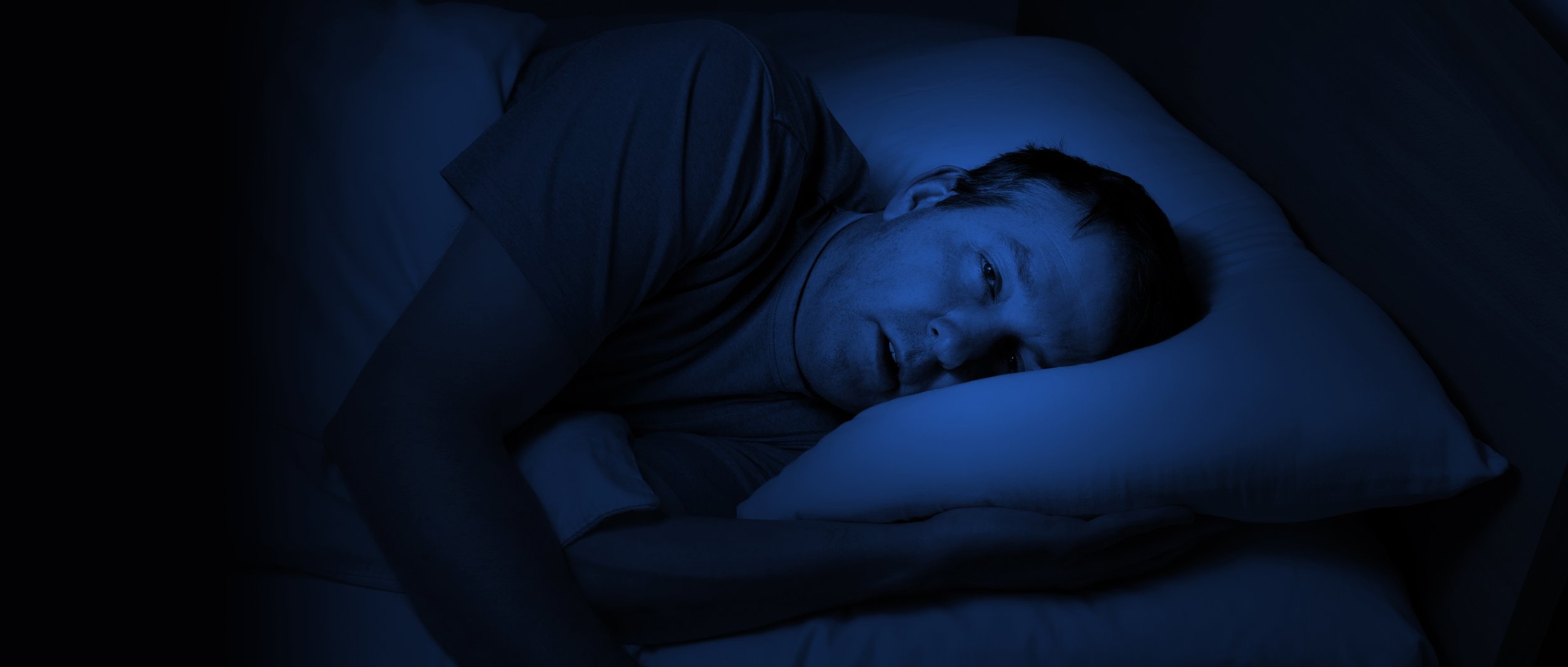
Patient Information
If you are an individual seeking information about sleep disorders for yourself or a loved one and have found our site, we appreciate your visit. Somnitech does not directly provide sleep disorder testing to patients, but rather does so by supplying these services through local hospitals. For your benefit, we have provided information below to assist in your understanding of this complex health condition. We encourage you to discuss your concerns with your healthcare provider to determine if sleep disorder testing is appropriate for you.
-
Sleep disorders can wreak havoc on one’s body if left untreated. Increased risk for motor vehicle accidents, heart disease, high blood pressure, diabetes, stroke, and even death can occur due to an underlying sleep disorder. If you suspect yourself or a loved one is suffering from a sleep disorder, please reach out to get them referred to a sleep lab near you.
Signs & Symptoms:
• Snoring
• Waking gasping for air
• Trouble concentrating
• Restless legs
• Morning headaches
• Irritability
• Constantly tired
• Weight gain
• Frequent urination at night
• Unusual wake sleep cycle
Comorbidities is a statement used when an individual has more than one disease process within their body. These disease processes are more of a chronic (long term) condition that together continue to take a toll on one’s overall health. There are some disease processes that are heavily correlated with an underlying sleep condition. If you or a loved one suffer from some of these conditions, talk to your provider about the potential for a referral for a sleep study.
• Uncontrolled hypertension (high blood pressure)
• Uncontrolled diabetes
• Heart disease
• Pulmonary Hypertension
-
Sleep Apnea:
Sleep apnea is the cessation of airflow during sleep. There are multiple types of sleep apnea, with obstructive sleep apnea being the most common type. This occurs when the airflow is stopped due to the collapse of the pharyngeal airway. Sleep apnea is associated with many comorbidities, such as obesity, diabetes, heart disease, and high blood pressure to name a few.Insomnia:
In this sleep disorder, patients have trouble falling asleep, staying asleep, and/or getting good quality sleep. It is said that 50% or more of people have had insomnia at one point or another.Restless legs:
Restless legs (also known as periodic limb movement at night) is a neurological condition characterized by uncomfortable or odd sensations in the limbs and an irresistible urge to move them. This condition requires to be seen in the sleep lab with a licensed sleep technologist to monitor your sleep study.Narcolepsy:
Narcolepsy is a neurological condition that’s number one characterization is excessive sleepiness during the day and what are known as sleep attacks at incorrect times. This condition requires you to be seen in the lab for an overnight study, followed by a daytime study.Parasomnias:
This sleep disorders is actually a category of types of sleep disorders. These sleep disorders involve abnormal behaviors during all different stages of sleep and/or waking and transitioning to sleep. This form of sleep disorders requires an in lab study attended by a licensed sleep technologist to monitor and record.
-
Sleep is an essential pillar to one’s overall health, even being stated by some that it is the foundation of health. Lack of sleep, especially over time, can wreak havoc on one’s physiological and cognitive functions. Studies show that for every 45 minutes of sleep lost is a 5-10% decrease in proper body function/performance.
Cognitive Effects
• Negatively impacts memory
• Creates for a moody temper
• Diminishes creativity
• Increase in anxiety
• Decreases problem solving skills
• Decreases reaction time
• Increase in depression symptoms
• Increases stress response
• Less focus
• Less cooperation
Physiological Effects
• Weakens the immune system
• Affects the body’s insulin release
• Risk of diabetes
• Risk of high blood pressure
• Decrease in libido
• Increase in chemicals contributed to inflammation
• Weight gain contributed to chemical imbalances
• Becoming more injury prone
-
Muscle Tension/Relaxation
The idea to this technique is that there will be an enhanced sense of control of one's body. Try the following techniques: 1. Squeeze your hands into a fist quickly and tightly and then slowly release, 2. Tighten abdominal muscles and slowly release, 3. Close the eyes forcefully and then slowly opening. Do this in a relaxing, environment other than the bedroom as you prepare for sleep.
Breathing Exercises
Take time for deep breathing exercises before bed. Yoga practices tend to use the 4-7-8 technique, which is encouraged for triggering a relaxation response. You breathe in for 4 seconds, hold for 7 seconds, and breath out slowly for 8 seconds. Do this no more than three times in a row to help alleviate light headedness.
Visualization Imagery
During this technique you will imagine a setting that is a tranquil place. Somewhere you've been or somewhere made up that allows for tranquility. During this time, complete engage all your senses and allow each of them to relax during this moment. Sort of teleporting your entire self there and free of distractions.
Other Bedtime Techniques
Other techniques that can be utilized to help occupy the brain, while relaxing the body: 1. Audio stories (i.e. podcasts, books, meditation apps, etc) 2. Reading of fictional books, 3. Removal of blue light devices 20-30 mins before bed




